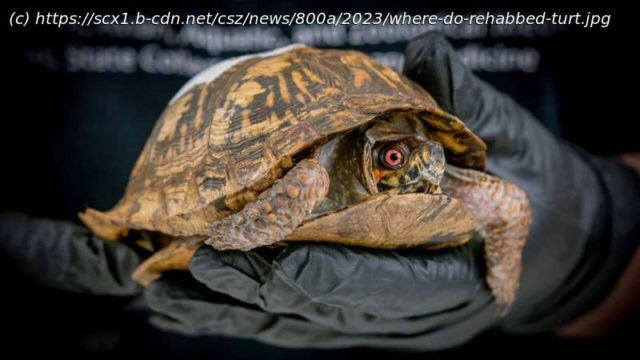When a wild turtle recovers from an accident and is released back into the wild, what happens next? A new study from North Carolina State University reveals that finding those answers can often be just as challenging as saving the turtle itself.
When a wild turtle recovers from an accident and is released back into the wild, what happens next? A new study from North Carolina State University reveals that finding those answers can often be just as challenging as saving the turtle itself.
NC State’s Turtle Rescue Team (TRT) is an all-volunteer operation run by veterinary students that sees over 600 wild turtles, reptiles and amphibians each year. On average, approximately half of the animals admitted each year are successfully treated and then released back into their home environment.
„As a volunteer organization, we don’t really have the resources or means to track all of these animals and discover what their health outcomes might be in the long term,“ says Sarah Zurbuchen, lead author of the study and graduate of NC State’s veterinary school. „I wanted to do a pilot study to try and figure out what the survival odds really are for these animals—and what the challenges of trying to track them would be.“
Zurbuchen and her fellow TRT volunteers selected 16 turtles for the pilot study.
The turtles were selected based on several logistical parameters: they had to be deemed fit for release by both the rehabilitation coordinators and the turtle’s case manager; they had to have been found within one hour’s driving distance of the NC State Veterinary Medical Campus to facilitate regular tracking; they had to live on public land or, if on private property, landowners needed to agree to regular tracking of the turtle for the length of the study; and finally, the turtles needed to weigh at least 100 grams to ensure the transmitter was not over 7% of their body weight.






